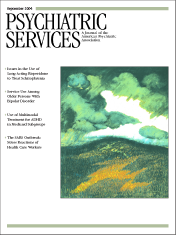Posttraumatic Stress Disorder, Depression, and Perceived Safety 13 Months After September 11
Abstract
This study assessed relationships between exposure to the September 11, 2001, terrorist attack, current posttraumatic stress disorder (PTSD), current major depression, and current safety perceptions in a sample of 212 Pentagon staff members 13 months after the attack. Forty-eight respondents (23 percent) had possible PTSD; eight (4 percent) had probable major depression. Respondents who were directly exposed to the attack were more likely to have PTSD and major depression and were less likely to have a perception of safety at work and in usual activities and travel only. In contrast, respondents with PTSD reported a lower perception of safety at home, at work, and in usual activities and travel.



